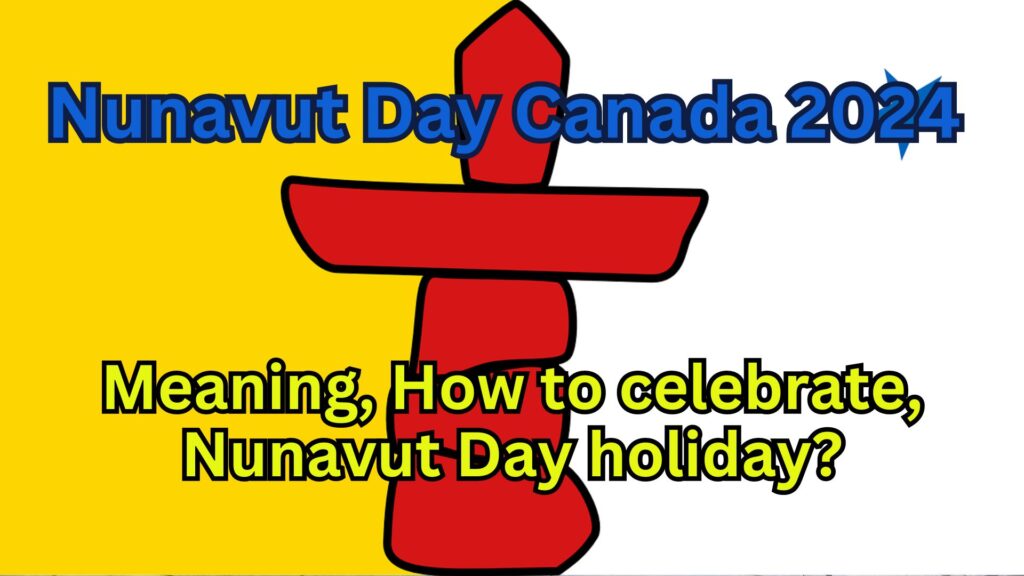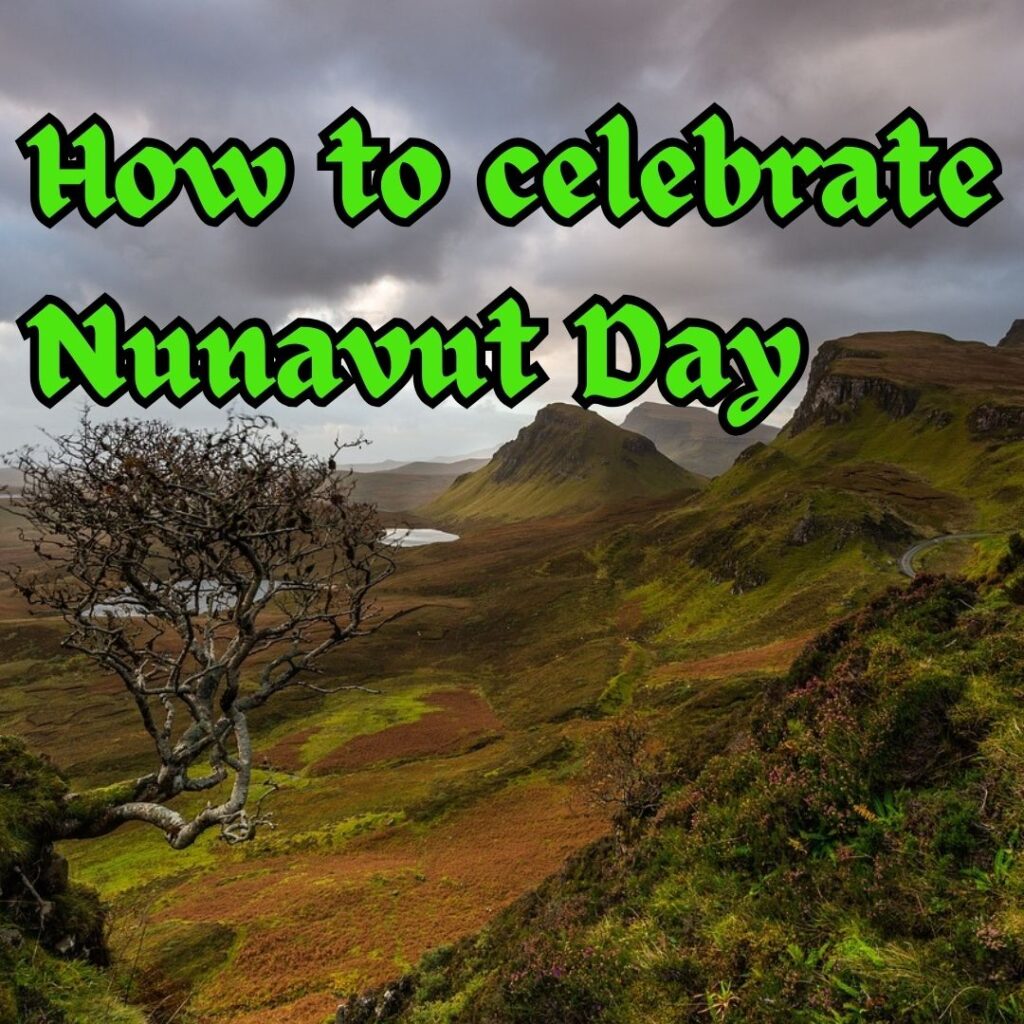Nunavut Day Canada 2024: Meaning, How to celebrate, Nunavut Day holiday?

What is Nunavut Day, Nunavut Day meaning, Happy nunavut day, Nunavut Day in Canada, Nunavut Day Canada 2024
Nunavut Day, celebrated on July 9th each year, is a significant holiday in Canada that marks the anniversary of the Nunavut Land Claims Agreement Act and the Nunavut Act, both of which came into effect on July 9, 1993. This agreement led to the establishment of Nunavut as a distinct territory on April 1, 1999, separating it from the Northwest Territories. The day is a celebration of Inuit culture and heritage, and various events, ceremonies, and activities are held throughout Nunavut to honor this occasion.
Is Nunavut Day a statutory holiday, Nunavut Day holiday, is Nunavut Day a stat holiday
Yes, Nunavut Day is a statutory holiday in Nunavut. This means that it is a public holiday recognized by law, and employees in the territory are entitled to a day off with pay. Various events, including community feasts, traditional games, cultural performances, and educational activities, are held to celebrate the day.
How to celebrate Nunavut Day, Nunavut Day celebrations

Celebrating Nunavut Day can be a meaningful way to honor the culture, history, and people of Nunavut. Here are some ways you can participate in the celebrations:
1. Attend Community Events: Many communities in Nunavut organize special events, such as traditional feasts, games, music, and dance performances. These events offer a chance to experience Inuit culture firsthand.
2. Learn About Inuit Culture: Take time to read about Inuit history, traditions, and contemporary issues. You can visit local museums, cultural centers, or online resources.
3. Try Traditional Inuit Foods: Participate in or host a meal featuring traditional Inuit dishes like bannock, seal, caribou, and Arctic char.
4. Engage in Traditional Activities: Participate in traditional Inuit activities such as kayaking, dog sledding, or throat singing demonstrations.
5. Support Inuit Art and Crafts: Visit local galleries or online stores to purchase Inuit art, jewelry, or handmade crafts. This helps support local artisans and keeps traditional crafts alive.
6. Educational Workshops: Join or organize workshops that focus on Inuit crafts, language, or storytelling to deepen your understanding and appreciation of Inuit culture.
7. Watch Documentaries and Films: Watch documentaries and films about Nunavut and Inuit culture to gain insights into their way of life and the challenges they face.
8. Participate in Online Events: If you cannot be in Nunavut, look for virtual events and celebrations that you can join online. Many organizations stream their events live or provide recorded sessions.
Celebrating Nunavut Day is an opportunity to learn, appreciate, and support the rich cultural heritage of the Inuit people and the unique landscape of Nunavut.
Nunavut Day Canada history
Nunavut Day commemorates the establishment of Nunavut, Canada’s newest and largest territory. Here’s a brief history of this significant day:
- Nunavut Land Claims Agreement: The origins of Nunavut Day date back to the Nunavut Land Claims Agreement Act, signed on May 25, 1993. This agreement, along with the Nunavut Act, was a comprehensive land claim settlement between the Inuit of the eastern Arctic and the federal government of Canada. The agreement aimed to provide Inuit with land, resources, and self-governance.
- Passage of the Nunavut Act: On July 9, 1993, the Nunavut Act was passed by the Parliament of Canada. This legislation created the territory of Nunavut by carving it out of the eastern portion of the Northwest Territories. It was a significant step toward recognizing the rights and aspirations of the Inuit people.
- Establishment of Nunavut: Nunavut officially came into existence on April 1, 1999. It became Canada’s third territory, with a landmass covering about one-fifth of Canada’s total area. Iqaluit, formerly known as Frobisher Bay, was designated as the capital of Nunavut.
- Cultural Celebrations: Nunavut Day is celebrated with various cultural events, including traditional games, feasts, music, dance performances, and community gatherings. It is a day for Inuit to showcase their rich cultural heritage and for others to learn and appreciate the unique aspects of Nunavut.
Nunavut Day is a testament to the resilience and determination of the Inuit people and a reminder of the importance of preserving and respecting indigenous cultures and their rights.
